Stay in the know on all smart updates of your favorite topics.
The smart technique between blue-green roofs.

Today we will launch our brand new five-part movie series of RESILIO!
This serie will dive into the different approaches & researches within the project and the partners with their specific expertises. In the first one Kasper Spaan from water company Waternet and Friso Klapwijk MetroPolder Company explain you how smart micro watermanagement can be of paramount importance to a complete city. It’s not just a drop in the ocean... check it out here:
Shaping development in cities to combat climate change

Ever wondered what life would look like in a sustainable, regenerative city?
With cities occupying only 3% of the global land surface but contributing to 70% of emissions, positive change can have a big impact. Metabolic CEO Eva Gladek reflected on how we can all become city makers. In light of COP26, it might be time to refocus on our cities.
Ready to take action? Find out how in the link below.
Workshop: What's in IT for you? Scaling sustainable impact through IT innovations
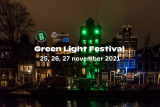
In the city center of Amsterdam, residents, companies and knowledge institutions are joining forces for a sustainable city center. We aim to preserve the cultural-historical heritage as well as prepare it for the future. This challenging area for sustainability asks for smart solutions. Upscaling is necessary in order to create historic and sustainable city’s of the future.
Scaling sustainable impact
In this workshop we look at what is necessary for (heritage) experts and property owners to be able to advise about sustainability faster and easier while still securing a high quality standard. We show that even with custom energy advises it is possible to have a scalable approach. In this workshop, the brand new advisory tool for sustainable historic buildings is launched. Tom Huizer will give a demonstration of the tool on behalf of De Groene Grachten and share the results of the first 100 recommendations made using this tooling in the Green Light District.
The workshop takes place on Thursday 25 November. Sign up for Workshop 3 on the registration form to attend.
Green Light Festival
This workshop is part of the Green Light Festival. Two years ago we renamed the Red Light District to the 'Green Light District'. Together with residents, companies, knowledge institutions and partners, we are transforming the city center of Amsterdam into a sustainable and future-proof heart of the city. Discover how we can make a sustainable impact together during the Green Light Festival. What have we achieved together in recent years? And what will the next 10 years look like? In interactive workshops, walk&talks, events and symposia you get to know the area in a whole new way.
Join us in Amsterdam or online! Together we will color the city center green. We look forward to seeing you on November 25, 26, and 27 in the Green Light District!
View the program or sign up!
Green Light District
Green Light District is a collaboration between De Groene Grachten, NV Zeedijk, Municipality of Amsterdam, De Gezonde Stad, Rooftop Revolution, TU Delft and EIT Climate-KIC.
We work together with these partners and our community of residents and other frontrunners in the city. The project is part of the ‘Nieuw Amsterdams Klimaat’ and together we map out a smart route to a future-proof city.
Check out the Green Light District website!
Ben jij de Kwartiermaker die we zoeken?
Zin om mee te bouwen aan de beste, meest duurzame digitale
infrastructuur ter wereld? Laat je horen! We zoeken een Kwartiermaker die helpt
de digitale infrastructuur van Nederland verder te verduurzamen.
We gebruiken allemaal steeds meer data, zowel zakelijk
als privé. Om dat te kunnen doen is een hoogwaardige digitale infrastructuur
essentieel. Nederland heeft één van de beste digitale infrastructuren ter
wereld en die moeten we koesteren!
Met de groei van onze data-economie, neemt de schaarste op het energienet en op kritieke materialen verder toe en daarmee ook de noodzaak om bestaande en nieuwe oplossingen op het snijvlak van energie en ICT te versnellen. Om zo verder te verduurzamen.
Om LEAP te laten groeien tot een volwaardig programma, een sterk
samenwerkingsplatform en community, zoeken wij een ondernemende, bevlogen
kwartiermaker met kennis over energie en ICT, en een hart voor #duurzaamheid.
Een stevig verbinder die LEAP die samen met partners verder werkt aan
innovatieve oplossingen, structureel voorziet van funding en een heldere
governance.
Reageer t/m 19 november op de vacature hieronder.
City of Amsterdam focuses on sustainability and circularity for the seventh edition of its Startup in Residence innovation programme.

The City of Amsterdam is on the lookout for innovators for the seventh edition of its Startup in Residence programme. This year’s programme will focus on the themes of sustainability and circularity, with the city looking for its best entrepreneurs, start-ups, scale-ups and SMEs to develop creative and innovative solutions.
On the journey to a circular economy, don’t forget your materials passport

If we can find a way to reuse building materials for new construction effectively, the energy, labor, and transportation costs of producing new materials can be saved, and so can the associated emissions.
Check out this article by Metabolic, where they dive into a promising potential solution: materials passports.
Vacature AMS: programma ontwikkelaar "De Ideale Monitor"
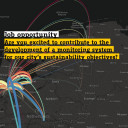
Amsterdam Institute for Advanced Metropolitan Solutions (AMS Institute) zoekt een programma ontwikkelaar met passie voor duurzaamheid & data. Een verbinder, die mensen en inhoud kan samenbrengen, en onderzoek kan koppelen aan maatschappij.
Wil jij bijdragen aan het ontwikkelen van de monitoring en sturing van de duurzaamheidsdoelstellingen van Amsterdam, en wil je opereren op het snijvlak van beleid, maatschappij en data-gedreven onderzoek?
AMS Institute werkt samen met de gemeente Amsterdam en andere partners in de MRA aan het monitoren en meten van de verschillende duurzaamheidsdoelstellingen van de stad. Denk aan energietransitie, circulaire economie, klimaatadaptatie, mobiliteit, donuteconomie. Het AMS Institute en de gemeente slaan de handen in elkaar om alle doelen, indicatoren en projecten in kaart te brengen, hun vooruitgang te meten en te identificeren waar de grootste potenties tot verbetering zitten.
Wij zoeken een ambitieuze en proactieve projectleider om dit meerjarig programma te leiden. Je werkt mee aan een van de grootste en vooruitstrevende initiatieven op het gebied van monitoring en sturing van de duurzame stad; een mooie kans om impact te maken.
Digitaliseringspubquiz met Marleen Stikker

Welke Trump-tweet is echt en welke is nep? Hoeveel MB aan datasporen laten we per persoon dagelijks achter? En herken jij de deepfake-video? Dit soort vragen komen voorbij bij de digitaliseringspubquiz op donderdag 7 oktober. Een uur lang testen we jouw kennis over jouw digitale leven. En zoals het bij een pubquiz hoort: de bar is open (voor een gratis drankje).
Speel mee met de grote digitaliseringsquiz op donderdag 7 oktober! Kunstenaar Roos Groothuizen ontwerpt speciaal voor FLOOR een pubquiz met allerlei vragen over je digitale leven, social media, privacy en meer. Dus ben jij die tech-savvy eindbaas en denk je deze quiz met gemak uit te kunnen spelen, of ben je nog maar bij level 1 en heb je nog wel wat digital skills op te doen? Meld je dan snel aan! En o ja, Marleen Stikker - HvA Professor of Practice the all seeing eye voor digitalisering – kijkt toe.
Hoe werkt het?
Bemachtig snel een plekje door je aan te melden via onderstaand formulier. Tijdens de quiz speelt iedereen in feite netjes alleen. Maar vals spelen mag! Dus wil je als team meespelen, zorg dan dat iedereen zich aanmeldt via het formulier. Kom op de dag zelf op tijd, bemachtig een tafeltje met je team en sleep die digiprijzen in de wacht!
Programma
16:00 – 16:30 Inloop en registratie
16:30 – 16:40 Introductie van Marleen Stikker
16:40 – 17:25 Quiz
17:25 – 17:30 Prijsuitreiking
17:30 – 18:00 Borrel
Toegang is gratis, meld je aan via de link hieronder.
Building back better with a systemic approach

As the world grapples with vaccinations, variants, and how to return to "normal", it’s a good time to reflect on whether or not we are fully equipped to prevent future shocks.
Building true resilience means addressing the systemic issues that make our world increasingly fragile, by understanding the deeper structures and mental models at the root of a problem to create lasting solutions.
Check out our article done by Metabolic last year about building back better.
Circulair ondernemen voor het MBK / Blunder Breakfast Almere
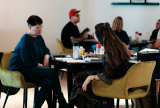
BLUNDER BREAKFAST - Circulaire ondernemers uit Almere geven je concrete voorbeelden van hoe circulair ondernemen er uit kan zien en vertellen over de dingen waar zij tegenaan zijn gelopen.
Na een eerste editie eerder dit jaar, gaan we verder met een tweede reeks workshops over circulair ondernemen. In de eerste sessie horen we de verhalen van Almeerse ondernemers die hun blunders en successen met ons delen. Welke keuzes hebben zij gemaakt en wat zouden zij anders hebben gedaan?
Wat kun je verwachten?
• Een informele bijeenkomst met leuke verhalen en leerzame ervaringen uit het Almeerse duurzame bedrijfsleven
• Netwerken met andere Almeerse ondernemers
• Leuke start van een boeiende reeks onder het genot van een kopje koffie en zoete broodjes om je dag mee te beginnen!
De Blunder Breakfast is onderdeel van een reeks bijeenkomsten, georganiseerd door Van Loof in opdracht van de Gemeente Almere. Deze bijeenkomst is op woensdag 22 september en duurt van 10:00 tot 12:00, in het World Trade Center in Almere. Het adres is P.J. Oudweg 4, 1314 CH, Almere. Het WTC ligt naast het station en is daarom makkelijk bereikbaar met het openbaar vervoer, er zijn ook diverse parkeergarages in de buurt.
Zien we je daar? Meld je aan of lees meer via de link!
14 questions to guide entrepreneurs towards deep and lasting impact

To achieve a circular economy, innovation is key. One of the key ways to get here is through entrepreneurship. To be effective in this journey, entrepreneurs need to know how to navigate what creating a deep, transformational impact really means.
• How do we decide where to focus our attention?
• How do we design solutions and organizations that provide the best chances for success?
14 questions to maximize impact
Chis Monaghan, Co-Founder at Fresh Ventures Studio, a Metabolic spinoff, developed these 14 questions to serve as a simple checklist for anyone looking to maximize the impact of a particular initiative. Fresh Ventures is a venture-building program and startup studio based in The Netherlands.
Marineterrein Amsterdam Living Lab in full swing
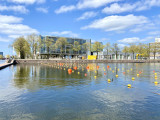
During the pandemic, it might have felt as if the world temporarily stood still. However, while most of us worked at home, the Living Lab projects at Marineterrein Amsterdam were still running.
Although dealing with traveling restrictions, social distancing, and the accompanying delays - it was still possible to run the experiments - all within guidelines - and some of the projects developed at a rapid speed. Despite all these restrictions, Marineterrein Amsterdam Living Lab (MALL) was in full swing.
Read on for updates on:
• The autonomous and modular vehicle Roboat
• Roboat meets The garbage module
• Space For Food: from waste water to cultivating purple bacteria
• Respyre lets moss grow on concrete
• The Responsible Sensing Lab
• Side walk robot Husky
CASSINI Hackathon Netherlands: Digiting Green Spaces

Do you have an innovative idea to solve the challenge in digitizing green spaces? Are you thinking of starting your own company? Have you already started working on your green idea and need help to build it? Then get your friends and network to join you at the CASSINI Hackathon Netherlands.
How does one Hack at a Hackaton?
Hacking is creative problem-solving. We all know that there are so many potential applications for Artificial Intelligence. This hackathon is about coming up with creative solutions using AI. However, it’s only a weekend, so don’t worry about building that complex AI algorithm or even knowing the full extent of AI. Our experts are here to collaborate with you on creative solutions using this technology.
What's in it for you?
- Be taught by the top trainers in the Netherlands on Design Thinking and Pitching
- Receive unlimited support from facilitators and industry experts throughout the entire weekend
- Gain exclusive access to data points from the European Space Agency
- Test on NVIDIA grade technologies like A100s and Omniverse with the support of their experts
- We have got you covered with uber eats vouchers to keep you full and healthy
- Win exciting prizes!
Note from ASC: Are you in? Drop a like.
Data Dilemma recap: Focus on the right data when measuring Circular Economy

As a city Amsterdam has ‘ambitious ambitions’ Jorren Bosga (city of Amsterdam) stated in his opening, as he was referring to Amsterdam’s Circular Economy (CE) Monitor. He did this in another edition of Data Dilemma’s. Here - in collaboration with Datalab Amsterdam - the biggest data-related hurdles of the great public transitions get addressed in a discussion between a panel of (international) experts and the audience.
This time, our experts talked about their experiences, plans and struggles on monitoring the circular economy. Jorren shared the cities ambition to reduce the use of primary abiotic resources (not derived from living organisms) by 50% in 2030 and by 100% in 2050. To gain insights into the progress towards the city’s top-level circular economy targets, Jorren expressed the need for both high coverage, as well as high detail of the data collected. Characteristics that seem almost mutually exclusive.
Data with high coverage and detail
A top-down approach, like Amsterdam’s collaboration with the Central Bureau of Statistics, leads to a broad general insight, but lacks detailed data of materials and is
subjected to assumptions. Working bottom-up will grant you more detailed data, but only on a small part of the system. To do the latter, Amsterdam partners with sector-wide reporting organizations or large companies, for instance in monitoring company-level waste processing.
What’s being reused and repaired?
Next up was Nina Lander Svendsen from PlanMiljø to talk about their multinational
collaboration study on the state of the circular economy in the Nordic countries. Like Amsterdam, she urged the need for more data on the ‘inner circles’ of CE, containing the reuse and repair of products and materials. Being able to influence the lifetime of materials will be most interesting to policy makers. Political strategies on stimulating the circular economy allow more specific collection of data and monitoring, in contrast to just generally gathering data. Having a stronger correlation between the circular transition and the expected impacts, will increase the influence of policy changes.
Focus on measuring what you really want to know
The call for focus on the things you really want to measure was underlined by Luc
Alaerts, researcher at the KU Leuven and Leuven 2030. It is easy to look at what you can do with the data that is available, but it contains the risk of creating a false sense of control. If policy makers only look at a small portion of the system, that portion will get a disproportionate amount of influence. It is therefore important to also focus on the data that is not available yet. A city can aim for a high amount of registered users of a car sharing-app, but if that means that people are grabbing a car instead of a bike
or using public transport, it’s debatable if it has had the effect they were
aiming for.
Importance of dialogue with stakeholders
Also, Luc touched upon the importance of dialogue with stakeholders in collecting data. Lowering reluctance by making them part of the project, focusing on the value
it creates and gaining trust before you ask for data seems the way to go. In
Leuven, they showed this in their materials bank - a project where construction
materials get a second life.
Wanted to join the session, but couldn’t? Or do you want to rewatch that one particularly good part of the discussion? Check out the recording anytime you like.
Circulair: Hout ter grootte van Oosterpark hergebruiken

Onderzoek van HvA en Metabolic maakt de impact van vrijgekomen hout uit Amsterdamse renovatieprojecten van woningcorporaties zichtbaar: ‘Het Oosterpark zou 30 jaar nodig hebben om al het hout te produceren dat hier beschikbaar komt.’
Hout, metaal, kunststof, steen: er komen veel materialen vrij bij renovatieprojecten. Maar een duidelijk overzicht hiervan ontbreekt. Zonde, want deze materialen bieden mogelijkheden voor hergebruik. Een materiaalstroomanalyse van woningcorporaties Ymere en Rochdale, uitgevoerd door de Hogeschool van Amsterdam (HvA) en Metabolic als expert op gebied van circulair bouwen en materiaalgebruik, laat zien dat er vooral veel hout vrijkomt. Een materiaal dat nog te vaak in de afvalverbrandingsinstallatie belandt, terwijl het een hoog hergebruikpotentie heeft. Het onderzoek is voor de woningcorporaties een eerste stap om meer te doen met hout dat vrijkomt uit hun renovaties.
De cijfers liegen er niet om, in totaal kan er 281 m3 hout uit een selectie van 12 Amsterdamse renovatieprojecten van woningcorporaties Ymere en Rochdale worden gehaald. Dat staat gelijk aan het hout waar een bos ter grootte van het Amsterdamse Oosterpark 30 jaar voor nodig heeft om het te produceren. Meer dan 60% van dit hout wordt verbrand, wat zorgt voor 110.270 kg CO2-uitstoot; evenveel als de jaarlijkse energie- en warmtegerelateerde uitstoot van 29 huishoudens. Als we ons dan realiseren dat dit om slechts een fractie gaat van de renovatieprojecten in Nederland, laat dat concreet zien hoe groot de impact van de gebouwde omgeving is, vertelt Nico Schouten, Green building consultant bij Metabolic.
Hout voor circulaire toepassingen in de Robot Studio
De analyse toont aan dat er met name veel hout vrijkomt van raamkozijnen en deuren, dat mogelijkheden biedt voor circulaire toepassingen, zegt Tony Schoen, projectleider van het onderzoek Circular Wood for the Neighbourhood. ‘In de Robot Studio leren we hoe we dit soort hout kunnen verwerken met industriële robots. Het plan is om met de robots prototypes te maken van praktijkcases gerelateerd aan dit soort renovatieprojecten, waarin we de grootste impact kunnen maken. Wij denken met robots het hout efficiënt te kunnen verwerken, terwijl handmatige verwerking veel te duur zou zijn.’
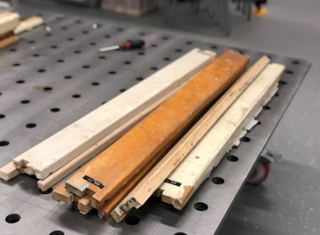
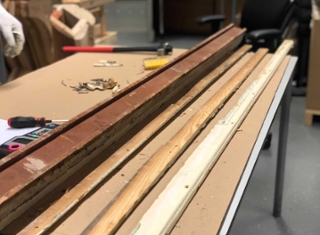
Studenten en onderzoekers van HvA kunnen in de Robot Studio gaan ontwerpen met de reststromen, wat ervoor zorgt dat de toepassingen makkelijk schaalbaar zijn, verklaart Schouten van Metabolic. ‘Het demontabel in elkaar zetten van producten en het ontwerpen met reststromen is een belangrijke stap om de impact van de bouwsector te minimaliseren. En robottechnieken zijn essentieel om dit lokaal te doen.’
Digitale marktplaats en ontwerpersplatform
Op de lange termijn wil de HvA de gehele keten van houtinzameling tot verwerken in nieuwe toepassingen onderzoeken en ‘in de vingers krijgen’, sluit Marta Malé-Alemany, hoofd van de Robot Studio, af. ‘In dit project kijken we vooral naar de potentie van twee woningcorporaties en zien we nu al de voordelen van een intensievere samenwerking voor circulaire toepassingen. Door bijvoorbeeld de planning en logistiek van gebouwrenovaties per gebied te gaan coördineren, kunnen houten materialen worden vrijgemaakt voor hergebruik waarvan verschillende bedrijven in dat gebied profiteren. Ook gaan we de technische stappen verder onderzoeken in samenwerking met de houtverwerkende industrie. Hiermee willen we ervoor zorgen dat onze ideeën van houtverwerking tot circulaire ontwerptoepassingen geïmplementeerd kunnen worden door de bedrijven’.
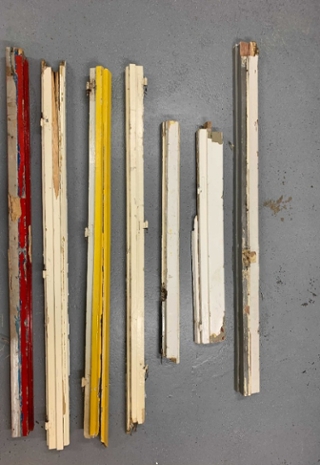
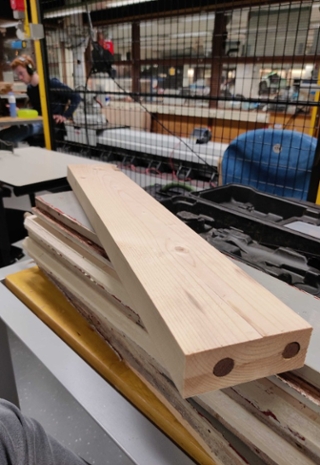
Meer informatie Circular Wood for the Neighbourhood
De HvA voert het project Circular Wood for the Neighborhood (RAAK-publiek-project van Regieorgaan SiA) uit samen met Ymere , Rochdale , TU Delft , Metabolic en andere partners. Het project wordt uitgevoerd door de Digital Production Research Group van het Centre of Expertise Urban Technology van de HvA, waar onderzoek wordt gedaan hoe geavanceerde ontwerp- en productiemethoden (ook wel ‘Digitale Productie’ genoemd) gebruikt kunnen worden om maatschappelijke vraagstukken aan te vliegen. De groep werkt aan onderzoeks- en onderwijsactiviteiten in de Robot Studio.
Metabolic doet in Nederland veel werk aan het in kaart brengen van materiaalstromen en het onderzoeken van hergebruikpotentie van materialen. Zo hebben zij voor het Economisch Instituut voor de Bouw (EIB) de nationale consumptie en afstoot van de Nederlandse bouwsector in kaart gebracht en werken zij op nationaal en regionaal gebied veel aan urban mining . Ook doen zij dit op kleinere schaal voor gebiedsontwikkeling en bouwprojecten. De kennis die zij over de jaren hebben opgedaan, zetten zij nu in als achtergrondinformatie voor Circular Wood for the Neighbourhood.
Digital Society Showcase

It’s that time of the year again! Are you ready for our Online Digital Society Showcase?
In 20 weeks the trainees of Digital Society School worked in multidisciplinary teams on developing a working prototype in collaboration with our project partners. During the showcase the teams will show you the prototypes and explain how they contribute to the Digital Transformation of Society and the Sustainable Development Goals. Of course it’s possible to ask your questions and have conversations with all the teams.
Save the date!
When: Monday June 21st
Whats time: 16:00 - 18.00 CEST
Cost: free
RSVP to secure a spot at our Showcase!
Programme
16:00 Welcome
by Zlatina Tsvetkova (Learning Experience Designer) and Marco van Hout (Creative Director)
16:10 Live talkshow “Dear Future, I’m Ready!”
with Interviews and conversations about
- Transformational Leadership and how we build capacity for it in Digital Society School
- Learning revolution - the vision, stories, and projects behind our track Educational Technology for social change and the new track we are starting in September, Beyond Blended
- Social tech and Digital Transformation -the vision, stories, and projects behind our tracks Digital Twin and Systems for Sharing
- World Building -the vision, stories, and projects behind our track Design Across Cultures and our biggest global event Global Goals Jam
- Instruments of change - stories about the ways we integrate technology in society with our instruments teams.
17:00 Opening of the EXPO
You can walk around our virtual venue and meet the teams that have worked on these topics for the last 5 months. They will show you their prototypes, tell you about the journey they took to create them and answer your questions.We will also have an open session to continue the conversations on the topics above with a possibility for you as an audience to join the discussion.
18:00 Closing
Meet the partners
Amsterdam Economic Board, Amsterdam University of Applied Sciences, Association of Dutch Municipalities (VNG), City of Amsterdam, Durham University, European Union, Generalitat de Catalunya, INNO-TEC-LAB, Metropool Regio Amsterdam, Municipality of Haarlem, Startup Amsterdam, Streaming Buzz, University of Amsterdam, University of Barcelona, University of Bucharest, University of Ljubljana.
The projects couldn’t be possible without all partners. A big thank you to all. We are very proud for having the chance to work with all of you.
Sustainable Development Goals
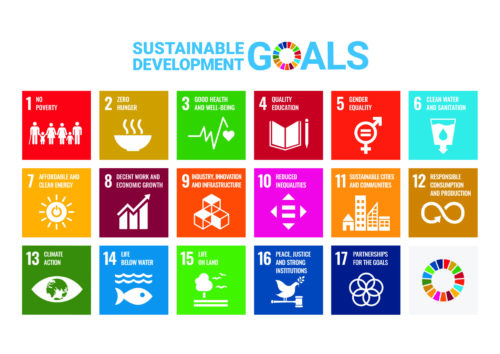
With our projects we support the Sustainable Development Goals (SDG) of the United Nations.
Meet the speakers of Data Dilemma’s event: “Measuring the Circular Economy”

A tool that gives strategic insights in the materials that are being used in the city and how we use them. That’s what the Monitor Circular Economy - created by the city of Amsterdam - does. And it doesn’t stop there.
What we buy, build & throw away has significant social and environmental impact abroad. And since the city has adopted the Doughnut Economics framework, these impacts need to be quantified and addressed.
Introducing Our Speakers
We’re looking forward to discussing different ways to include this information in the data during this session with our three talented speakers on June 3rd, 16:00 - 17:15. It’s in English and (also) aimed at (inter)national city-to-city knowledge exchange & collaboration.
Jorren Bosga – City of Amsterdam
Jorren has quite recently begun working at the city of Amsterdam, but has quite a background in data science in sustainability and monitoring the impact of sustainability interventions. At the city of Amsterdam, he is now working on the development of their Circular Economy Monitor and dashboard.
Nina Lander Svendsen – PlanMiljø
Nina has a master in Political Sciences and is specialised in Environmental and Climate policies. Since she has joined consultancy platform PlanMiljø, she has worked on policy analyses and strategies for topics in the Circular Economy and UN Sustainability Goals, where she also focuses on monitoring systems.
Luc Alaerts – KU Leuven / Leuven 2030
Luc works at the KU Leuven in the department of Sustainable Material Management. He’s also part of the expert group of Leuven 2030, which is focused on making Leuven a climate neutral city. Luc works on the knowledge and monitoring of both sustainability pilots as well as evaluating and optimizing organisational practices.
Data Dilemma's: Measuring the Circular Economy

The city of Amsterdam is developing the Monitor Circular Economy; a tool that gives strategic insights in the materials that are being used in the city and how we use them.
One of the key motivations behind the push to a circular economy is that material consumption - what we buy, build & throw away - has significant social and environmental impact abroad. And since the city has adopted the Doughnut Economics framework, these impacts need to be quantified and addressed.
Getting an overview of material flows
Measuring the circular economy is a crucial first step. We want an overview of material flows in the city and we want detailed data on how circular these flows are. So top-down and bottom-up, but each come with their own challenges:
• Detailed knowledge at a product level is difficult to obtain in a scalable way since
products are complex, there are no reporting standards or requirements, and there are many products.
• Aggregated material flow statistics are only available at a national level, not at a regional or city level.
City of Amsterdam teamed up with CBS
To tackle the top-down challenge, the city of Amsterdam teamed up with the Dutch Central Bureau of Statistics (CBS). By combining trade statistics and transport data in a novel way, it was possible to create datasets that show regional material flows and they’re ready to give you some preliminary results.
These results cover material flows, but do not yet include information about how ‘circular’ certain goods or sectors are. We’re looking forward to discussing different ways to include this bottom-up information in the data during this session. Though slated for development later this year, the city of Amsterdam is also eager to share some ideas and approaches on gaining insight into the ecological impact and social impact of material consumption worldwide.
Together with a panel of experts, we will discuss these challenges and share learnings and insights. As per usual, the experts will not be the only ones participating: you can too. Join this Data Dilemma’s session and feel free to participate actively in the chat. That way we’ll have a nice interactive conversation between all parties.
Join this session of Data Dilemmas on June 3rd from 16:00 till 17:30
Sign up for the Data Dillema:
Measuring the Circular Economy - How to get the full picture.
Program:Online event
Date: 3rd of June 2021
Language: English
15.50 – Digital walk-in
16.00 –16.05: Introduction by Amsterdam Smart City & Datalab
16.05 – 16.10:Introduction to challenge
16.10 –16.45: Presentations + Q&A
16.45 –17.15: Plenary discussion and wrap-up
Speakers:
1. Jorren Bosga (city of Amsterdam); Netherlands
2. Nina Lander Svendsen & David McKinnon (Plan Miljø); Denmark
3. Luc Alaerts, Julie Marin & Karel van Acker (KU Leuven); Belgium
About the Data Dilemmas series
Projects like the Circular Economy Monitor show us that possibilities of using data and new technologies to address big transitional challenges are endless. We use the data to make cities safer, cleaner and more accessible. But do we really need the data in all cases? What happens to all the data that is collected? Which choices did people make and why? Which dilemmas can be encountered? These questions are important for everyone; for governments, knowledge institutions, residents and companies. Amsterdam Smart City likes to explore with you which decisions are needed for responsible use of data. Data Dilemmas is a collaboration between Amsterdam Smart City and the City of Amsterdam’s Datalab.
Dagboekstudie: hoe wil jij thuis je afval kwijt?

In steden zonder kliko’s of afvalinzamelingspunten in de buurt is afval scheiden niet voor iedereen makkelijk te noemen. En in een klein appartement op vier hoog heb je nauwelijks plek voor alle benodigde prullenbakken. De Hogeschool van Amsterdam (HvA) doet met BASSTA onderzoek naar betere afvalscheiding door huishoudens in de stad.
Met deze studie kunnen we achterhalen hoe stedelijke huishoudens hun afval scheiden, waar het nog niet zo goed gaat en hoe we dit kunnen verbeteren met gedragsinterventies. Met een duidelijke uitleg hoe en waarom deze interventies werken, is het streven dat zoveel mogelijk Nederlandse stedelijke gemeenten hiermee aan de slag gaan. Met ongeveer 8 miljard kilo huishoudelijk afval per jaar in Nederland zorgt elk percentage betere scheiding voor enorme resultaten.
Dagboekstudie: Hoe goed scheid jij thuis je afval?
In een doe-boek worden de resultaten bijgehouden van leuke, korte opdrachten die iets zeggen over afvalgedrag. Hierin wordt ook aangegeven wat (on)prettig of (on)handig is rondom de afvalinzameling bij jou thuis. Dat is nuttige informatie voor de gemeente en afvalinzamelaar, die kunnen daarmee hun werk verbeteren.
Een vereiste is wel dat je op een plek woont waar je geen eigen kliko’s hebt, maar waar je wel afval kan scheiden door gebruik te maken van gezamenlijke voorzieningen zoals ondergrondse containers.
Zin gekregen om mee te doen?
Geef je op en krijg eind mei het doe-boek thuisbezorgd. De onderzoekers zullen dan ook nog iets meer uitleg geven. Je mag zelf kiezen op welk moment je de opdrachten doet. Na een week komen de onderzoekers het doe-boek gewoon weer ophalen. Heb je nog vragen? Mail projectleider Maarten Mulder of laat een berichtje achter in de comments.
Meld je aan voor de dagboekstudie
Interactieve wandeling langs onze digitale wereld

Elke week stijgt onze schermtijd. Swipen, streamen, downloaden, surfen: een steeds groter deel van ons leven speelt zich online af. We Netflixen ons suf, laten tijdens het thuiswerken onze Spotify ongegeneerd afspelen, videobellen met vrienden en familie en nemen filmpjes op met gekke filters op onze gezichten. Dat moet ergens worden opgeslagen. Maar waar?
Van Floppy Disks naar The Cloud
Het begon bij floppy disks, die USB-sticks werden, en harde schijven. Inmiddels zeggen we, wanneer we over data-opslag spreken, dat het ‘in de cloud zit’ - waarbij we het liefst dromerig in de verte staren. Maar de cloud is geen wolk: datacenters rijzen in Nederland in hoog tempo uit de grond. In die gebouwen liggen talloze gegevens opgeslagen, van leuke kattenfilmpjes tot onze diepste medische geheimen. Alles opgeslagen op gigantische servers.
ICT voetafdruk groter dan ons vliegverkeer
En die servers hebben stroom nodig. De wereldwijde ecologische voetafdruk van data en ICT is inmiddels groter dan die van ons vliegverkeer. Om maar te zwijgen over ons drinkwater: alleen al in Noord-Holland wordt het zoveel gebruikt als koelwater voor de datacenters, dat er in die provincie een drinkwatertekort dreigt. Liggen onze kattenfilmpjes naast de staatsgeheimen op zo’n server? Hoe ziet een datacenter er van binnen uit? Kunnen we op deze weg door blijven gaan? En hoe zie jij je toekomst zelf online? Komt er bijvoorbeeld in de toekomst een punt waarop we ons leven volledig online kunnen gaan leiden?
De Datawandeling
Doe je mee aan een van onze wandelingen rond datacenters in Nederland? De digitale wereld is niet onzichtbaar en manifesteert zich steeds meer in ons straatbeeld, zo ook via datacenters. In een interactieve en afwisselende route van ongeveer anderhalf uur, met informatie, vragen en gespreksstof, nemen we je mee naar de toekomst van de digitale wereld in ons fysieke landschap. Uiteraard helemaal corona-proof en te doen wanneer jou het uitkomt!
Je kunt de wandeling maken in Amsterdam en Utrecht (Groenekan). De routes starten en eindigen op hetzelfde punt, vaak in de buurt van een NS-station. De route op de routekaart geldt als indicatie. Je kunt zelf altijd stukken aan de wandeling toevoegen of de route verkorten. Het leukst is om de route met iemand anders te lopen, zodat je de vragen en stellingen samen tijdens het wandelen kunt bespreken.
Wanneer: Nu
Waar: Groningen, Maastricht, Amsterdam, Utrecht (Groenekan)
Nodig: Goede schoenen, opgeladen telefoon (voor het interactieve gedeelte), flesje water
Afstand wandeling: gemiddeld 6 kilometer
Stay up to date
Get notified about new updates, opportunities or events that match your interests.

